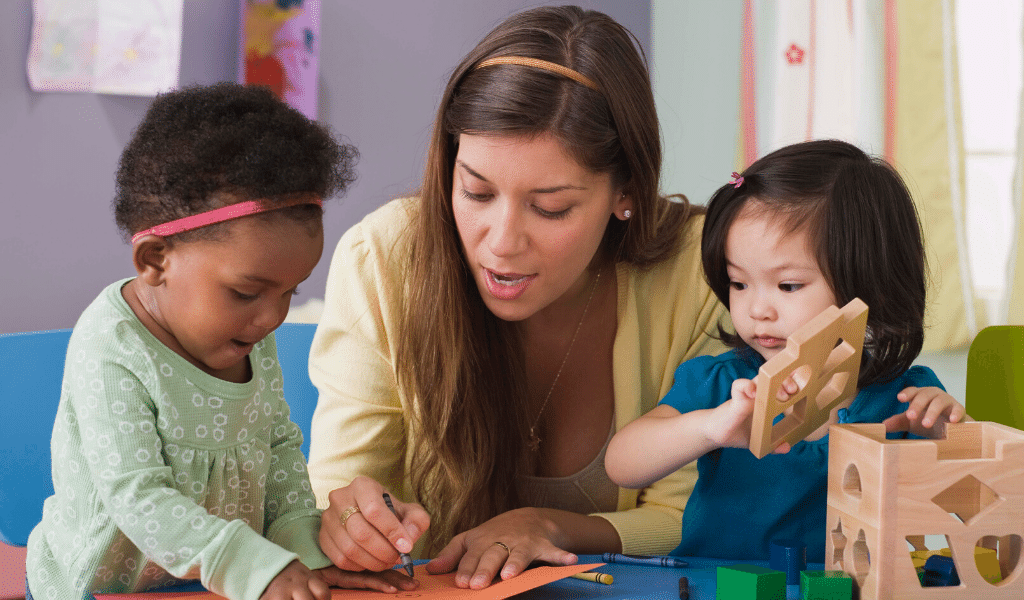To help you prepare to re-open your childminding business or nursery setting after lockdown, our early years expert Rebecca Martland has put together a detailed guide on operational issues, including risk assessment, insurance, policies, contracts and more!
To start with, I want to add a word of caution.
This blog has been based on official guidance from central government, the DfE, Public Health England (PHE) and the NHS. Some of that guidance has been conflicting or imprecise however, so what you read includes my interpretation or opinion. Ultimately the responsibility lies with setting managers, owners and childminders to ensure that what they do complies with legislation and any other requirements that are in place.
Childminders will be allowed to accept children of all ages from 1 June and Early Years settings all children below statutory school age, irrespective of their parents’ work status and includes older children who are not in the eligible ‘return to school’ year groups.
As a childcare setting, you should already have risk assessments in place already, as this is a requirement of the EYFS (3.64). Whilst risk assessments do not have to be in writing, I would suggest this is one situation that would justify written risk assessments.

In this way, you can show staff and parents how robust the measures you have put in place are, which will reassure them. It also provides evidence that you have taken ‘all reasonable steps to ensure staff and children are not exposed to risks’ should your practice be challenged, for example, if a child in your care became infected with Covid-19, and so provides part of your defence should legal action be taken against you.
There are sample risk assessments available online including from some Local Authorities, the Early Years Alliance and PACEY. The HSE website also has guidance on writing risk assessments.
When conducting a risk assessment bear in mind the individual children in your care and adapt accordingly. For example, if you have babies who are mouthing toys your risk assessment regarding frequency of cleaning and sharing toys is likely to be different compared to having only older children.
The DfE guidance recognises that young children are not able to maintain social distancing rules and instructs settings to use a group ‘bubble’ approach to reduce the number of people a child mixes with. It is acknowledged that sharing resources and physical contact within the bubble will occur and that this is an acceptable risk.

I would advise contacting your Public Liability Insurance provider, prior to opening, to confirm that the measures you have put in place meet their expectations and that they will cover you to operate. This may seem an extreme measure but is a minor inconvenience compared to discovering if action is taken against you or your setting that you do not have valid insurance in place. My understanding is that in general PLI providers are advising that cover remains in place as long as a setting is adhering to government guidance and legislation.
If you are considering adding disclaimers to your parent contracts or agreements, such as ‘you accept no responsibility in the event of a child contracting Covid-19’ I would also advise discussing this first with your insurance company as it is unlikely that such statements would be legally binding.
Once you have completed a risk assessment you can use this as the basis for updating your policies and procedures. Childminders do not need written policies for the EYFS but Safeguarding and Complaints policies must be in writing to comply with the requirements of the Childcare Register. I prefer to have my policies in writing as I find it easier to share them with parents, ensuring consistency and no room for misunderstanding.
Whilst there is no requirement to have a specific policy for Coronavirus you may find it convenient to do so, and/or to update existing policies in line with this. It seems sensible to review your current practices and make it clear to parents what the changes will be and what they can expect.

DfE advice is to minimise or eliminate the transfer of items between home and setting. This includes paperwork, such as policies and procedures, contracts, daily diaries, learning journals etc. They recommend moving to digital communication wherever possible.
Consider using WhatsApp, Messenger or email to send information home, or using an online communication system and learning journal like Kinderly. Remember that daily diaries, learning journals and written observations are optional, although providers should still make reasonable endeavours to fulfil the EYFS Learning and Development requirements, including making ongoing observations and assessments of children in their care.
If you have children leaving you to go to school and would normally produce a transition report, this can be emailed to the parents to be forwarded to the school, or directly to the school with parental consent. Transition reports are not an EYFS requirement, however.
There are programmes that can be used to request digital signatures where you need documents to be signed. Alternatively, documents can be printed at home, signed manually and photographed or scanned back to the setting.
Some Local Authorities, schools and settings have stated that they will not accept children who attend more than one setting or insist that they are the only setting a child attends, including refusing to allow childminders to bring and collect children. Whilst settings can set their own terms and conditions, this practice could be challenged. The DfE guidance actually states,
‘To minimise contact between groups of children and staff, children should attend just one setting wherever possible and parents and carers should be encouraged to minimise as far as possible the number of education and childcare settings their child attends. Childminding settings should consider how they can work with parents and carers to agree how best to manage any necessary journeys, for example pick-ups and drop-offs at schools, to reduce the need for a provider to travel with groups of children.
This guidance recognises that in some instances attendance at more than one setting will be unavoidable and necessary, for example where wraparound care is needed to enable a parent to go to work.

In terms of questions about the validity of contracts, giving and receiving notice, retainers and fees etc., these are difficult to answer as it will depend on what is written in individual contracts. The terms in these must be fair and clear, as if there is a dispute they are unlikely to be upheld in court otherwise. The Complaints and Marketing Authority (CMA) have created a taskforce to investigate possible examples of unfair practice during the pandemic, including nurseries enforcing full fees during lock-down.
Ideally, discuss your situation and intentions with parents and try to come to a mutual agreement to either amend your current contracts or create new ones. Government have asked that providers are ‘reasonable and balanced’ in their dealings with parents, for example, not charging fees whilst services are unavailable, except on a voluntary basis, or insisting on notice periods. I would advise waiving notice periods and fees wherever possible, for those not returning, as a goodwill gesture. Once the setting is fully open it would not be unreasonable to charge a retainer fee to parents if they chose not to send their child where there is a place available to them. Potentially this could be 100% of their usual fee but again, I would suggest less in order to maintain goodwill.

A final word about Ofsted
Ofsted have requested that settings advise them when they reopen, although this guidance may change if they find themselves inundated with emails on 1 June!
‘If your operating circumstances do change (you open or close), notify us by sending an email to enquiries@ofsted.gov.uk with ‘Change in operating hours’ in the subject field. In the body of the email, please confirm the unique reference number for each setting and the details of the change.’
About Rebecca Martland

Rebecca has 20 years’ experience in the early years sector: as a childminder, she has received an Outstanding grade from Ofsted for four consecutive inspections. She is an Early Years consultant, trainer, author and Nursery World Awards judge. She is also a qualified teacher and Early Years Professional.